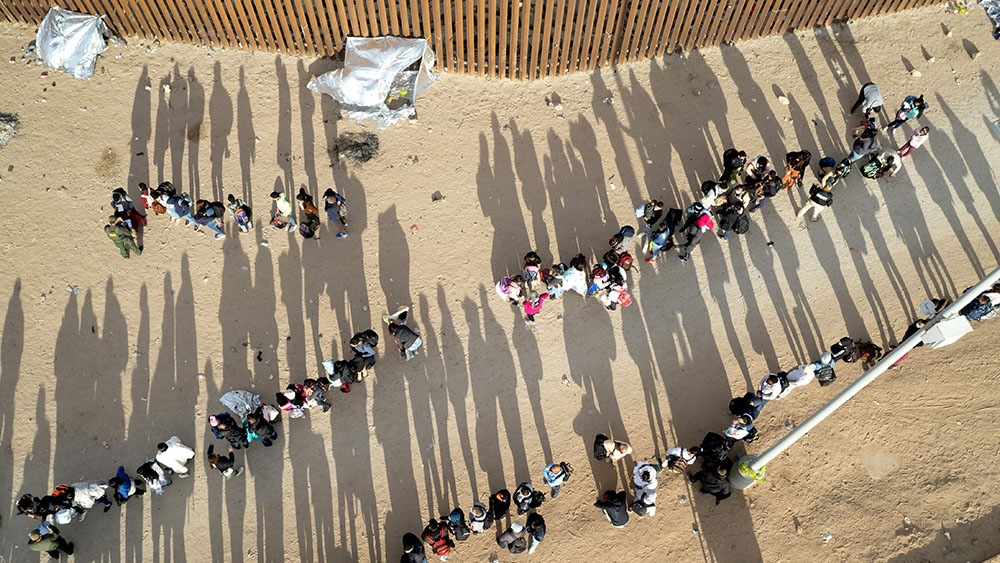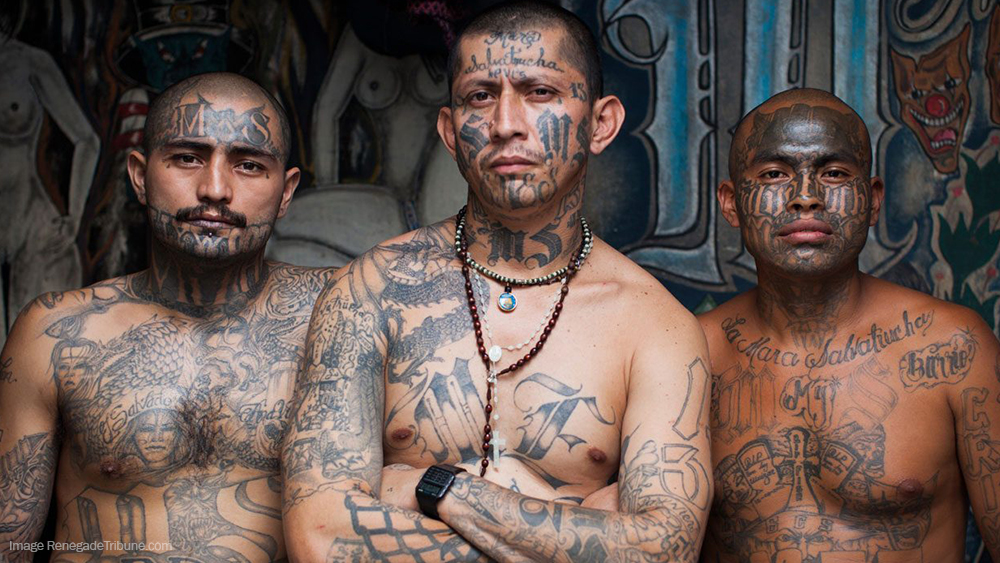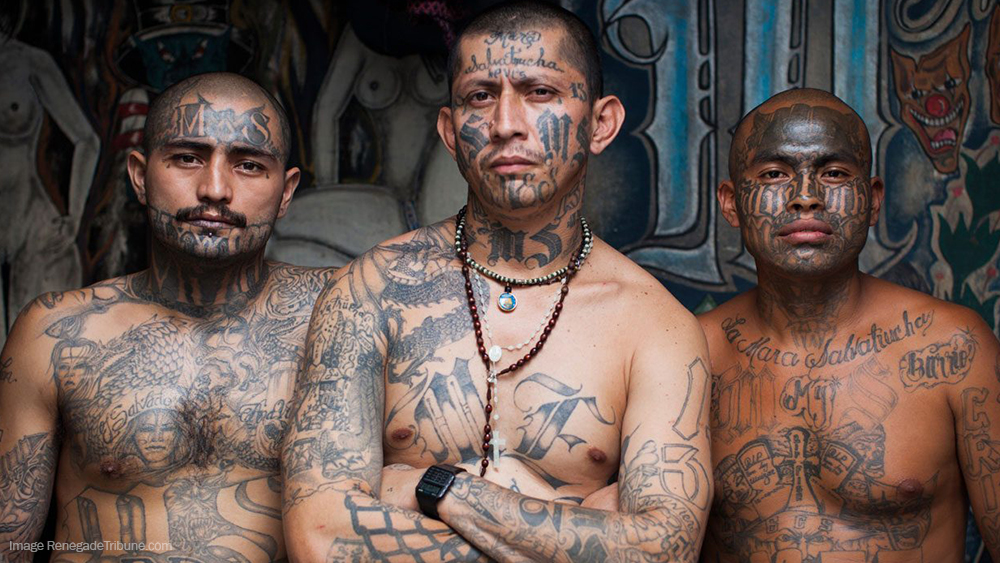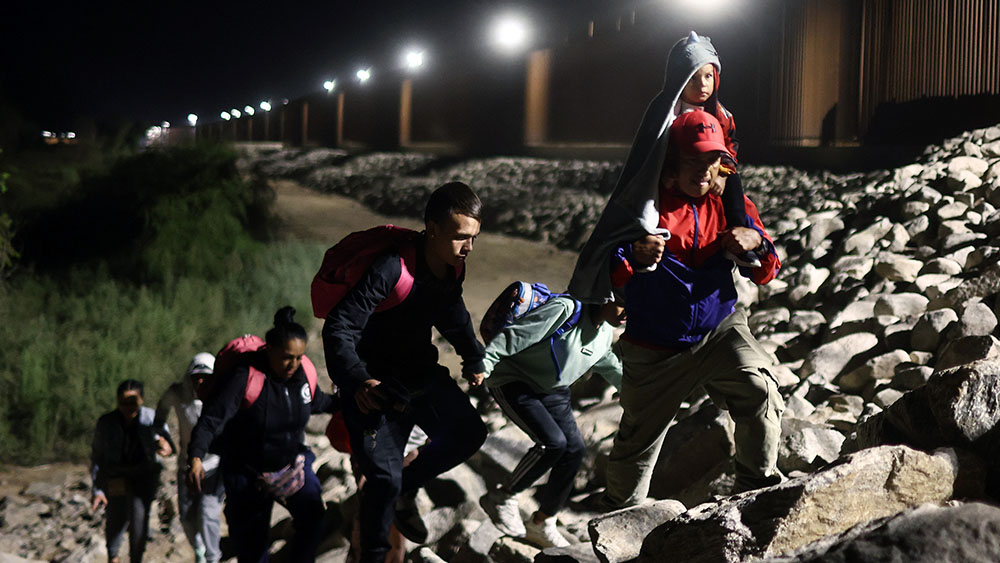EU is codifying MIGRATION QUOTAS to flood Europe with illegals
02/19/2024 / By Belle Carter

A new set of regulations and policies on the European Union’s “sustainable migration and asylum process” called “New Pact on Migration and Asylum” has just been approved by the European Parliament Committee on Civil Liberties, Justice and Home Affairs (LIBE) – opening up the continent to up to 75 million new migrants.
However, a lot of European conservatives are unhappy with the Parliament’s decision because of some key provisions that have been proven ineffective. In fact, Hungarian Prime Minister Viktor Orban has warned against the said set of policies, saying it will force countries like Hungary to accept migrants or face a severe financial penalty.
“The next question is how many they will force on us. Now they are deciding that. So, they are creating rules that give Brussels the right to say how many migrants they will distribute,” Orban said last year. “So, several countries have indicated that they do not agree. We do not want to implement it. In the end, we are facing a very unpleasant turn of events here.”
National Rally’s parliamentary wing leader Marine Le Pen even said that the pact is an organized plan of submersion of Europe and the nations that compose it. “It is a real pact with the devil that will lead to the suicide of Europe,” she declared during a press conference at her party’s headquarters in Nanterre in 2020. She was the first to predict that a pact such as this would bring millions of illegals into Europe. (Related: Be careful what you wish for: European commissioner wants EU to welcome ONE MILLION MIGRANTS each year to offset declining workforce.)
The new regulations indicated that member states can choose between accepting asylum seekers or paying a financial penalty that costs up to €25,000 ($26,927.50) per migrant. Orban said that Western European nations should be scrambling to accept more migrants, not distribute them to countries like Hungary. And yet, the bloc claims that member states that do not accept migrants will be penalized to help subsidize the cost of these migrants.
Robert Gonczi, an analyst at Hungary’s Migration Research Institute, told Magyar Nemzet that what the EU is doing is restructuring or even abolishing the Dublin system. They are establishing a new solidarity system, the exact limits of which have not yet been defined, he said. “This would look something like each state determining for itself how it could contribute to the management of migration at the EU level. However, there is a worrying element to this, as it would presumably include the distribution of migrants within the EU’s borders,” the analyst pointed out.
Gonczi added that the so-called quota migrant system has been in the European political discourse since 2015, but it does not seem to be the most effective solution and cited a case study by the Migration Research Institute as an example, wherein three Baltic states had previously accepted quota migrants, but that 90 percent of them disappeared from the three countries within a year and later turned up in Sweden, Germany and other Western European states.
“The redistribution system could also create intra-EU flows from the countries where these migrants have been relocated to the countries where they want to leave, as typically the destination countries have not changed,” he stressed. However, it would now be necessary for other EU countries to welcome these migrants, refugees and asylum seekers, he added. The real problem is that the reinforcement of the EU’s external borders would be less or not at all, which is what is needed.
EU migration pact pushed through despite opposition
Critics have been questioning why the said pact has pushed through despite various opposing views. According to reports more than 50 civil society organizations wrote a letter to negotiators in the European Commission, the Spanish Presidency of the Council of the European Union and the European Parliament ahead of the final negotiations on the EU Pact on Migration on the eleventh hour back in December to warn against risks. But everything fell on deaf ears.
“If adopted in its current format, it will normalize the arbitrary use of immigration detention, including for children and families, increase racial profiling, use ‘crisis’ procedures to enable pushbacks, and return individuals to so-called ‘safe third countries’ where they are at risk of violence, torture and arbitrary imprisonment,” they argued, adding that the pact will betray the spirit of existing EU work, such as the EU Action Plan on Integration and the EU Action Plan Against Racism which recognizes the intersectional impacts of racism and the specific vulnerability of migrants and refugees. “The Pact, as it stands, risks perpetuating discriminatory practices within the very structures meant to uphold justice and protection for all,” the letter added.
Still, it was railroaded through. Final negotiations were concluded in the absence of Shadow Rapporteurs and those that did not hold rapporteurship on any of its files, such as the Greens and the Left, were left out altogether.
According to a report on Euractiv, in 2021, the Legal Service of the Council of the EU issued an opinion stating that the pact was legally impossible due to its inclusion of Schengen elements alongside non-Schengen ones. But this was ignored until the last minute when it became clear that the whole set of rules could be thrown out by the courts. “This trend of acting first and asking questions later goes beyond the pact. The recent Instrumentalisation Regulation on migration, which proposed significant infringements on rights in hazily-defined cases of foreign states exploiting migration, was rejected in the Council after a damning Substitute Impact Assessment,” the report included.
Migrants.news contains more news related to globalist organizations’ push to flood nations with illegals.
Sources for this article include:
Submit a correction >>
Tagged Under:
asylum seekers, big government, Collapse, conspiracy, deception, EU, EU border, financial penalty, great reset, Illegal aliens, illegals, invasion, Marine Le Pen, migrants, migration pact, Open Borders, Pact on Migration and Asylum, population collapse, quota migrant system, suicide of Europe, Viktor Orban
This article may contain statements that reflect the opinion of the author
RECENT NEWS & ARTICLES
COPYRIGHT © 2017 DOMESTIC TERRORISM




















